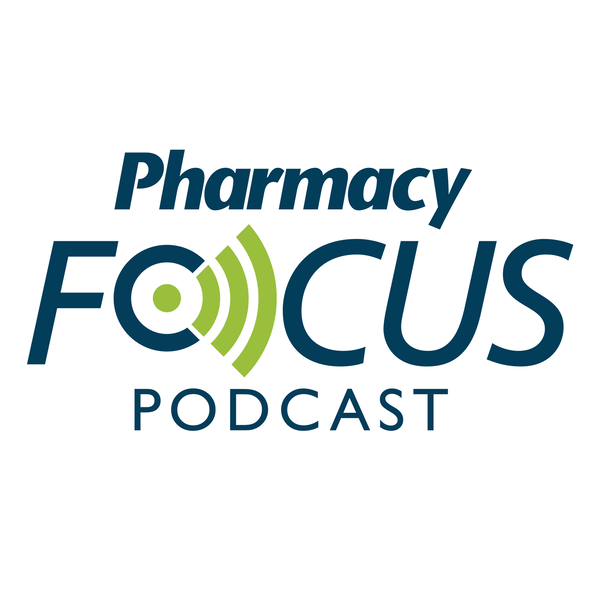Article
Biosimilars Have Implications for Pharmacy Practices
Author(s):
These alternatives to expensive biologic drugs can provide access to lifesaving treatments to more patients and cut costs for health systems.
Biosimilars are increasingly emerging as an alternative to expensive biologic drugs.1
They are highly similar to the reference biologic drugs in terms of efficacy, quality, and safety and offer a more affordable options to treat various chronic diseases, such as cancer, diabetes, and rheumatoid arthritis. In recent years, the availability of biosimilars has been rapidly increasing and it has the potential to greatly affect the pharmaceutical industry, including pharmacies and pharmacists.
The high cost of biologic drugs has been a significant burden on many health systems and patients. Biosimilars, as a result of their lower cost compared with their reference biologic drugs, have the potential to provide access to these life-saving treatments to more patients. Furthermore, they can also lead to cost savings for health systems, allowing resources to be reallocated to other areas of need. Biosimilars are also a new source of competition for the pharmaceutical industry. The entry of biosimilars into the market can lead to increased competition and lower prices for reference biologic drugs. This has the potential to greatly affect the pharmaceutical industry, including both the manufacturers of reference biologic drugs and the manufacturers of biosimilars.
Pharmacies and pharmacists play a crucial role in the dispensing and administration of drugs. As the availability of biosimilars continues to increase, pharmacists will face new challenges and opportunities.
One challenge is the education and training required to effectively and safely interchange biosimilars. Biosimilars, though highly similar to their reference biologic drugs, are not identical, and pharmacists will need to understand the differences and implications for patient care. This will require pharmacists to be up to date on guidelines and information regarding biosimilars. Another challenge for pharmacists will be to communicate the benefits and limitations of biosimilars to patients. Pharmacists will need to educate patients about the cost savings that biosimilars offer, as well as the differences and similarities between biosimilars and their reference biologic drugs. They will also need to address any patient concerns have about the efficacy and safety of biosimilars.
On the other hand, the increasing availability of biosimilars also presents new opportunities for pharmacists. The lower cost of biosimilars compared with their reference biologic drugs means that more patients will be able to afford these treatments, increasing the potential for pharmacists to improve patient outcomes. Additionally, the increased competition in the pharmaceutical industry brought about by the entry of biosimilars can lead to lower prices for reference biologic drugs, providing pharmacists with more options for patients.
There is a growing body of research that suggests there are significant educational gaps among health care providers when it comes to their knowledge of biosimilars. Study results have shown that many health care providers have limited knowledge about biosimilars, including how to safely prescribe them, how they are made, and their efficacy and safety. The results of a study published in The Journal of Managed Care & Specialty Pharmacy showed that just 45% of primary-care physicians and 58% of rheumatologists could correctly answer questions about biosimilars.2 The results of another study published in The Journal of Clinical Oncology showed that just 20% of oncologists could correctly answer questions about biosimilars.3 The results of a survey of nurses and pharmacists published in The Journal of Oncology Pharmacy Practice showed that just 36% of nurses and 44% of pharmacists could correctly answer questions about biosimilars.4 These studies suggest that there is a significant knowledge gap among health care providers when it comes to biosimilars and that more education is needed to ensure that they can make informed decisions about the use of biosimilars in their practices. It is worth mentioning that while the educational gap exists, FDA regulations are new and knowledge about biosimilars is still evolving. Therefore, the educational gap is likely to decrease as more information becomes available and more biosimilars are approved. The introduction of the Board Certified Biologics & Biosimilars Specialist program by the Accreditation Council for Medical Affairs is an important milestone in the field of biologics and biosimilars by setting the first competency standards in the industry among health care and life science professionals.5,6
Biosimilars are a rapidly emerging alternative to expensive biologic drugs and have the potential to greatly affect pharmacies and pharmacists. Although there are challenges associated with the increased availability of biosimilars, such as the education and training required for pharmacists to communicate the benefits and limitations of biosimilars to patients, there are also new opportunities for pharmacists to improve patient outcomes and provide access to more affordable treatments. It is important for pharmacists to stay up to date on guidelines and information regarding biosimilars and to effectively communicate this information to patients.
References
1. 5 reasons biologics remain expensive. Accreditation Council for Medical Affairs. July 13, 2022. Accessed March 8, 2023. https://medicalaffairsspecialist.org/blog/5-reasons-biologics-remain-expensive 2. Leonard E, Wascovich M, Oskouei S, Gurz P, Carpenter D. Factors affecting health care provider knowledge and acceptance of Biosimilar Medicines: a systematic review. J Manag Care Spec Pharm. 2019;25(1):102-112. doi:10.18553/jmcp.2019.25.1.102
3. Peipert J, Kaiser K, Kircher SM, et al. Oncologists’ knowledge and perspectives on the use of biosimilars. J Clin Oncol. 2021;39(28_suppl):35-35.
doi:10.1200/jco.2020.39.28
4. Foreman E, Patel H, Siderov J, Harchowal J, Bubalo J, Chan A. A survey of global biosimilar implementation practice conducted by the International Society of Oncology Pharmacy Practitioners. J Oncol Pharm Pract. 2020;26(3_suppl):22-32. doi:10.1177/1078155220913098
5. Board Certified Biologics and Biosimilars Specialist Program BCBBS. Accreditation Council for Medical Affairs. Accessed March 8, 2023. https://medicalaffairsspecialist.org/certifications/bcbbs
6. Board Certified Medical Affairs Specialist (BCMAS). Accreditation Council for Medical Affairs. Accessed March 8, 2023. https://medicalaffairsspecialist.org/
Newsletter
Stay informed on drug updates, treatment guidelines, and pharmacy practice trends—subscribe to Pharmacy Times for weekly clinical insights.






